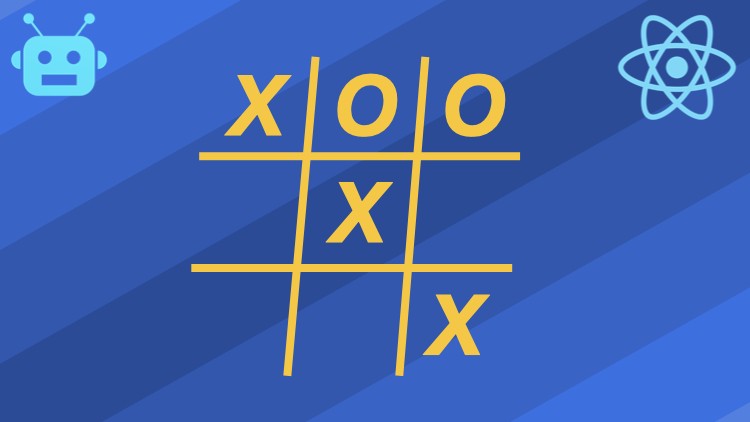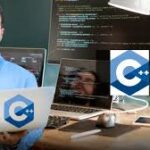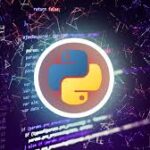Unlock the World of Data Science in Python with 250+ Engaging Exercises – Master the Art of Data Science!
SUMMARY
The “Data Science Bootcamp in Python: 250+ Exercises to Master” is a comprehensive, hands-on training program designed to immerse learners in the world of data science using Python. The course focuses on real-world problem-solving, providing participants with a practical, exercise-driven approach to mastering key data science concepts. Through over 250 exercises, learners engage with core topics such as data manipulation, analysis, machine learning, and data visualization, applying their knowledge to solve genuine data science problems.
Course Overview
The bootcamp-style course is structured into several sections, each focusing on different aspects of data science. It offers a blend of theory and practice, ensuring that participants not only learn important data science concepts but also gain practical experience by solving real programming problems. Learners work with a wide variety of Python libraries commonly used in data science, including NumPy, Pandas, Seaborn, Plotly, scikit-learn, OpenCV, and TensorFlow.
Key Learning Objectives
- Hands-On Exercises: The course offers over 250 exercises that cover a broad spectrum of data science topics. Each exercise is designed to reinforce a specific skill or concept, challenging participants to apply their knowledge in real-world scenarios. From data cleaning and manipulation to machine learning model development, the course provides practical experience at every step.
- Working with Python Libraries: The course includes exercises that utilize the most widely-used Python libraries in the data science domain:
- NumPy: For handling numerical data and performing operations on arrays and matrices.
- Pandas: Essential for data manipulation, including cleaning, transformation, and analysis of datasets.
- Seaborn and Plotly: Used for creating compelling, interactive data visualizations.
- Scikit-learn: A key library for implementing machine learning algorithms for classification, regression, and clustering.
- OpenCV: A library for working with images and video data, useful in computer vision projects.
- TensorFlow: For building and training deep learning models, particularly neural networks.
- Real-World Problem Solving: The course emphasizes solving real data science problems, pushing learners to think critically and creatively as they apply their knowledge. Each exercise presents practical challenges, from cleaning and transforming raw data to developing machine learning models for predictive analysis. Participants will also work with large datasets, gaining experience with the kinds of data they are likely to encounter in real-world applications.
- Documentation and Best Practices: The course encourages working with documentation and best practices, helping participants understand how to read and utilize libraries and frameworks effectively. By exploring official documentation and learning how to interpret and apply it, learners develop the self-sufficiency needed for successful data science work. This builds a deeper understanding of the Python ecosystem and its application in data science.
- Instructor Support: The course offers guaranteed instructor support, ensuring that learners can receive guidance and answers to their questions throughout their journey. Whether it’s troubleshooting code, understanding complex concepts, or receiving feedback on completed exercises, students have access to expert instructors who are available to support their learning.
Who This Course Is For
This bootcamp is designed for a wide range of participants, including:
- Aspiring Data Scientists: Individuals aiming to break into the field of data science and looking for a structured way to build practical skills.
- Students or Professionals with a Background in Statistics or Mathematics: Those who want to apply their theoretical knowledge to real-world data analysis problems and gain hands-on experience in Python.
- Programmers or Software Developers: Individuals looking to expand their skillset to include data science and machine learning using Python.
- Professionals in Data-Related Roles: Data analysts, business analysts, or professionals in related fields who want to enhance their data analysis, machine learning, and visualization skills.
- Self-Learners: Anyone interested in data science and machine learning who wants to gain practical experience through challenging exercises.
Skills and Concepts Covered
- Data Manipulation and Analysis:
- Learn to manipulate datasets, clean data, and perform exploratory data analysis using Pandas and NumPy.
- Perform data transformations, handle missing values, and understand how to structure data for analysis.
- Data Visualization:
- Create static and interactive visualizations using Seaborn and Plotly to uncover insights from complex datasets.
- Use data visualization to communicate findings effectively to both technical and non-technical audiences.
- Machine Learning:
- Master machine learning fundamentals using scikit-learn. This includes supervised and unsupervised learning, model selection, and evaluation metrics.
- Build classification, regression, and clustering models to solve various data science problems.
- Deep Learning:
- Explore TensorFlow and Keras to understand how neural networks work and build deep learning models for more complex tasks like image classification or natural language processing.
- Computer Vision:
- Use OpenCV to work with image data, developing skills in object detection, image processing, and manipulation.
Benefits for Participants
- Comprehensive Learning: The course covers everything from the basics of data manipulation to the advanced concepts of deep learning and machine learning.
- Practical Experience: Each exercise is designed to give hands-on experience with real-world problems, reinforcing learning through practical application.
- Real-World Skills: By the end of the course, participants will have developed the technical and problem-solving skills needed to succeed as data scientists.
- Guaranteed Support: Instructor support is available to help learners navigate challenges, ensuring they can make the most out of the course.
Conclusion
The Data Science Bootcamp in Python: 250+ Exercises to Master is an intensive, practical program aimed at individuals who want to become proficient in data science. Through a blend of theory and hands-on exercises, participants will master Python programming and develop skills in data manipulation, analysis, machine learning, deep learning, and computer vision. Whether you’re starting from scratch or looking to enhance your skills, this course offers an in-depth and immersive experience to help you succeed in the field of data science.
What you’ll learn
-
solve over 250 exercises in data science in Python
-
deal with real programming problems
-
deal with real problems in data science
-
work with libraries numpy, pandas, seaborn, plotly, scikit-learn, opencv, tensorflow
-
work with documentation
-
guaranteed instructor support
Description
The “Data Science Bootcamp in Python: 250+ Exercises to Master” is a highly comprehensive course designed to catapult learners into the exciting field of data science using Python. This bootcamp-style course allows participants to gain hands-on experience through extensive problem-solving exercises covering a wide range of data science topics.
The course is structured into multiple sections that cover core areas of data science. These include data manipulation and analysis using Python libraries like Pandas and NumPy, data visualization with matplotlib and seaborn, and machine learning techniques using scikit-learn.
Each exercise within the course is designed to reinforce a particular data science concept or skill, challenging participants to apply what they’ve learned in a practical context. Detailed solutions for each problem are provided, allowing learners to compare their approach and gain insights into best practices and efficient methods.
Data Scientist – Unveiling Insights from Data Universe!
A data scientist is a skilled professional who leverages their expertise in mathematics, statistics, programming, and domain knowledge to extract meaningful insights and valuable knowledge from complex datasets. They utilize various analytical techniques, statistical models, and machine learning algorithms to discover patterns, trends, and correlations within the data.
The role of a data scientist involves tasks such as data collection, data cleaning, exploratory data analysis, feature engineering, and building predictive or prescriptive models. They work closely with stakeholders to understand business needs, formulate data-driven strategies, and communicate findings effectively to support decision-making processes.
Data scientists possess strong analytical and problem-solving skills, as well as a deep understanding of statistical concepts and programming languages such as Python or R. They are proficient in data manipulation, data visualization, and machine learning techniques.
In addition to technical skills, data scientists possess strong communication and storytelling abilities. They can translate complex data findings into actionable insights and effectively communicate them to both technical and non-technical audiences.
Data scientists play a crucial role in various industries, including finance, healthcare, marketing, technology, and more. They help organizations make informed decisions, optimize processes, identify new opportunities, and solve complex problems by harnessing the power of data.
Packages that you will use in the exercises:
- numpy
- pandas
- seaborn
- plotly
- scikit-learn
- opencv
- tensorflow
Who this course is for:
- aspiring data scientists who want to learn and practice data science concepts and techniques using Python
- students or individuals with a background in statistics, mathematics, or related fields who want to apply their knowledge to real-world data analysis and gain practical experience in Python
- programmers or software developers who want to expand their skillset to include data science and machine learning using Python
- professionals working in data-related roles who want to enhance their data analysis and machine learning skills using Python for better decision-making and insights
- data analysts or business analysts who want to upgrade their skills to perform more advanced data analysis, visualization, and modeling using Python
- self-learners who are interested in data science and want to acquire practical experience by solving a variety of data-related exercises in Python




![[100% Off] Drupal For Absolute Beginners (2024)](https://couponcodenews.com/wp-content/uploads/2024/05/programming-web-building_87720-64595.avif)





